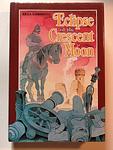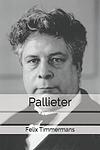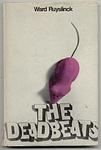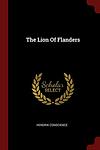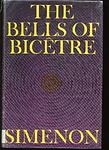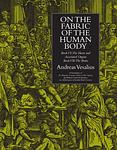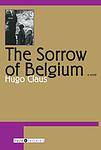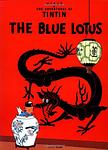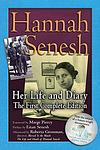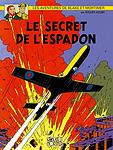The Greatest Hungarian, Belgian Books of All Time
Click to learn how this list is calculated.
This list represents a comprehensive and trusted collection of the greatest books. Developed through a specialized algorithm, it brings together 300 'best of' book lists to form a definitive guide to the world's most acclaimed books. For those interested in how these books are chosen, additional details can be found on the rankings page.
Genres
Countries
Date Range
Reading Statistics
Click the button below to see how many of these books you've read!
Download
If you're interested in downloading this list as a CSV file for use in a spreadsheet application, you can easily do so by clicking the button below. Please note that to ensure a manageable file size and faster download, the CSV will include details for only the first 500 books.
Download-
1. Fateless by Imre Kertész
"Fateless" is a harrowing account of a Hungarian Jewish boy's experiences in Nazi concentration camps during World War II. The protagonist is sent to Auschwitz, then Buchenwald, and finally to a factory in Zeitz, enduring brutal conditions and witnessing unimaginable horrors. Despite his experiences, he maintains a detached, almost indifferent perspective, focusing on the mundane aspects of life in the camps, which further highlights the absurdity and horror of the situation. The novel explores themes of identity, survival, and the arbitrary nature of fate.
-
2. Embers by Sandor Marai
"Embers" is a novel about two old friends who reunite after being apart for 41 years. The story takes place in a secluded castle in the Carpathian Mountains, where the two men confront each other about a long-kept secret that has kept them apart. The narrative delves into themes of friendship, love, loyalty, and betrayal, while exploring the intricate dynamics of human relationships. The novel is a poignant examination of the nature of time and memory, and the ways in which they can shape and define our lives.
-
3. The Notebook: The Proof ; The Third Lie : Three Novels by Agota Kristof
"The Notebook: The Proof ; The Third Lie : Three Novels" is a trilogy of novels that follow the lives of twin brothers, living through the harsh realities of war, separation, and betrayal. The first novel, "The Notebook," tells the story of their survival as children in a rural town at the end of World War II. The second book, "The Proof," continues their story into adulthood, exploring the effects of their traumatic childhood. The final book, "The Third Lie," delves into the complexities of their relationship and the secrets they kept from one another. The trilogy is a poignant exploration of identity, love, and the enduring bond of brotherhood.
-
4. Journey by Moonlight by Antal Szerb
"Journey by Moonlight" tells the story of a newlywed Hungarian couple, Mihály and Erzsi, who honeymoon in Italy. Mihály, however, is haunted by his past and becomes increasingly obsessed with his adolescent years, his old friends, and a mysterious brother and sister. This results in him abandoning Erzsi in order to embark on a strange and dark journey of self-discovery. The novel explores themes of nostalgia, love, and the struggle between personal desires and societal expectations.
-
5. Eclipse of the Crescent Moon by Géza Gárdonyi
"Eclipse of the Crescent Moon" is a historical novel set in the 16th century, during the time of the Ottoman Empire's siege on the Hungarian fortress of Eger. The story follows a brave young boy named Gergely, who grows up to be a heroic soldier defending his homeland. The tale is filled with romance, adventure, and provides a detailed depiction of medieval life, warfare, and the heroic resistance of the Hungarian people against the invading Ottoman forces.
-
6. Cheese by Willem Elsschot
The novel revolves around a Dutchman living in Antwerp, Belgium, who is persuaded by his brother to enter the cheese business. He invests in 10,000 full-cream cheeses and sets up an office, but struggles to sell any of his stock. As he grapples with the nuances of the cheese trade, his personal life and professional relationships also begin to crumble, leading to a series of comical and tragic events. The book is a satirical commentary on business, ambition, and the absurdity of life.
-
7. Fool's Gold by Máro Doýka
"Fool's Gold" is a compelling story about a man who, after a series of unfortunate events, finds himself in a small town in the mountains, where he discovers an abandoned gold mine. As he delves deeper into the mine, he uncovers not only gold but also the town's dark secrets and hidden past. As he navigates through the mine, he also navigates through his past, learning about himself and what truly matters in life. The book is a captivating exploration of human nature, greed, and the lengths people will go to for wealth.
-
8. Édes Anna by Dezső Kosztolányi
"Édes Anna" is a novel that revolves around the life of a young servant girl, Anna, who works for a bourgeois family in early 20th century Hungary. The narrative explores Anna's experiences of exploitation, abuse, and societal oppression. As she navigates her way through life, her innocence and naivety are gradually eroded, leading her to commit an act of violent rebellion. The book is a potent critique of class and gender inequalities of the time.
-
9. Celestial Harmonies by Peter Esterhazy
"Celestial Harmonies" is a historical novel that tells the story of the aristocratic Esterházy family, tracing their lineage from the late Middle Ages to the present day. The narrative is divided into two parts, with the first part featuring a series of vignettes about the family's ancestors, while the second part focuses on the experiences of the narrator's father under the Communist regime in Hungary. The novel is characterized by its intricate structure, complex themes, and lush, poetic language, offering a rich exploration of Hungarian history, family dynamics, and the human condition.
-
10. The Door by Szabó, Magda
"The Door" by Magda Szabo is a novel about the relationship between two women, one of whom is a writer and the other is her housekeeper. The story explores themes of class, power, and the complexities of human relationships. As the two women become increasingly intertwined, their relationship becomes more and more complicated, leading to unexpected consequences for both of them. The novel is a powerful exploration of the human condition, and a poignant reminder of the importance of understanding and empathy in our interactions with others.
-
11. Pallieter by Felix Timmermans
"Pallieter" is a classic Flemish novel that depicts the life of a jovial and life-loving man, Pallieter, who lives in harmony with nature in a small Belgian town. The story showcases his love for the simple pleasures of life, his interactions with the townsfolk, and his deep connection with the natural world. However, when industrialization threatens his idyllic lifestyle, Pallieter decides to leave his beloved town. The novel is a celebration of life and nature, while also exploring the impact of industrialization on rural life.
-
12. The deadbeats: a novel by Ward Ruyslinck
"The Deadbeats" is a gripping novel that follows the story of a man who, after losing his wife and job, descends into alcoholism and homelessness. The narrative delves into the harsh realities of life on the streets, exploring themes of despair, survival, and the human capacity for resilience. Despite the protagonist's struggles, the book also highlights moments of compassion and camaraderie among society's outcasts.
-
13. The Case Worker by György Konrád
"The Case Worker" is a novel that follows the life of a young, disillusioned social worker in Hungary who is struggling with the grim realities of his job. He is constantly faced with the harsh and desperate situations of his clients, which include the poor, the mentally ill, and the elderly. As he tries to help them, he becomes increasingly aware of the bureaucratic and social systems that often hinder rather than aid these vulnerable individuals. This leads him to question the effectiveness of his role and the larger societal structures in place.
-
14. The Lion of Flanders by Hendrik Conscience
"The Lion of Flanders" is a historical novel set in the 14th century, during the Battle of the Golden Spurs in Flanders. The story revolves around the struggle of the Flemish people against French oppression, with a particular focus on the life of the main character, a brave knight. The novel is recognized for its vivid depiction of the battle and the spirit of nationalism, making it an important piece of Flemish literature.
-
15. The bells of Bicêtre by Georges Simenon
The novel chronicles the life of a successful newspaper publisher who suffers a stroke and finds himself confined to a hospital bed, unable to communicate with the world around him. As he lies in his hospital bed, he is forced to reassess his life, his relationships and his own identity. The book explores themes of mortality, the meaning of life, and the complex nature of human relationships.
-
16. On the Fabric of the Human Body by Andreas Vesalius
"On the Fabric of the Human Body" is a seminal work in the field of anatomy, providing detailed descriptions and illustrations of the human body's structure and functions. The book, written in the 16th century, revolutionized the understanding of human anatomy, challenging the prevailing ideas of the time, which were primarily based on the dissection of animals. Its author, a physician and anatomist, emphasized the importance of direct observation and dissection of human bodies in medical education and research.
-
17. Epepe by Ferenc Karinthy
The book revolves around a linguist who finds himself inexplicably trapped in a nightmarish city where he cannot understand the language or communicate with the inhabitants. Despite his expertise in languages, the protagonist's skills are rendered useless in this alien environment, leading to a series of Kafkaesque encounters as he desperately tries to make sense of his surroundings and find a way back home. His isolation is compounded by the city's indifferent bureaucracy and the strange, often absurd, customs of its citizens, turning his ordeal into an existential struggle for identity and understanding in the face of an incomprehensible world.
-
18. The Sorrow of Belgium by Hugo Claus
"The Sorrow of Belgium" is a coming-of-age story set against the backdrop of World War II. The narrative follows the life of a young boy in a Flemish town, as he navigates through the complexities of adolescence, family relationships, and the harsh realities of war. The novel provides an insightful exploration of Belgian history, culture, and the nation's struggle under the Nazi occupation, all through the eyes of the protagonist.
-
19. Blue Bird by Maurice Maeterlinck
This classic play tells the story of two children, Mytyl and Tyltyl, who embark on a magical journey in search of the Blue Bird of Happiness. Guided by the Fairy Bérylune, they explore various realms – the Land of Memory, the Palace of Night, the Kingdom of the Future, and more – encountering symbolic figures like the Cat, the Dog, Light, and the Souls of Bread. Throughout their quest, they learn profound lessons about happiness, the nature of good and evil, and the value of appreciating the simple joys of their own lives. The narrative is a rich tapestry of fantasy, philosophy, and a quest for meaning, emphasizing the idea that true happiness is often found closest to home.
-
20. The Melancholy of Resistance by László Krasznahorkai
"The Melancholy of Resistance" is a surreal and philosophical novel set in a small Hungarian town that becomes isolated by a massive snowstorm. The arrival of a mysterious circus, featuring a stuffed whale and a silent, enigmatic leader, brings with it a wave of change and unrest. The narrative explores themes of chaos, resistance, and the struggle for power through the perspectives of various townsfolk, including a reclusive music theorist and a former political dissident. The novel is known for its complex, long-winded sentences and its bleak yet profound examination of human nature and society.
-
21. The Blue Lotus by Hergé
In "The Blue Lotus," a young reporter is sent on a mission to Shanghai during the Sino-Japanese War, where he uncovers a dangerous opium trafficking operation. Along the way, he befriends a Chinese boy who helps him navigate the cultural and political complexities of the region. The story combines elements of adventure, mystery, and political intrigue, set against the backdrop of historical events.
-
22. Hannah Senesh by Hannah Senesh
This book is a collection of the diaries, letters, and poems of a young Jewish woman who emigrated from Hungary to Palestine in the 1930s, driven by her Zionist beliefs. She joined the Haganah and later volunteered for a daring military operation to parachute into Nazi-occupied Europe during World War II, with the aim of aiding Allied forces and rescuing Hungarian Jews from the Holocaust. Her writings reflect her courage, literary talent, and the depth of her commitment to her cause. Tragically captured, tortured, and eventually executed by the Nazis, she became an enduring symbol of bravery and sacrifice in the face of tyranny.
-
23. The Life of the Bee by Maurice Maeterlinck
"The Life of the Bee" is a philosophical and scientific examination of the behavior and nature of bees. The author delves into the intricate world of the hive, exploring the roles and duties of the worker bees, drones, and queen bee, and the complex societal structure within the hive. The book also discusses the fascinating process of honey production and the life cycle of bees. The author uses the bee society as a metaphor for human society, drawing parallels between the two.
-
24. The Strange Case of Peter the Lett by Georges Simenon
This classic crime novel centers around a man named Peter the Lett, who is suspected of committing a series of murders in Paris. He is a foreigner, a loner, and has a mysterious past, which makes him the perfect suspect for the crimes. However, as the investigation unfolds, it becomes clear that the truth is far more complex. The narrative delves into themes of identity, prejudice, and the nature of guilt and innocence, offering a psychological portrait of a man caught in a web of circumstances beyond his control.
-
25. Blake and Mortimer by Edgar P. Jacobs
"Blake and Mortimer" is a comic series centering on two British heroes, a military intelligence officer and a nuclear physicist. The pair often find themselves embroiled in various international intrigues, battling against super-powered villains, alien invaders, and ancient civilizations. The series is known for its detailed artwork and complex plots, often involving science fiction and paranormal themes.
Reading Statistics
Click the button below to see how many of these books you've read!
Download
If you're interested in downloading this list as a CSV file for use in a spreadsheet application, you can easily do so by clicking the button below. Please note that to ensure a manageable file size and faster download, the CSV will include details for only the first 500 books.
Download



